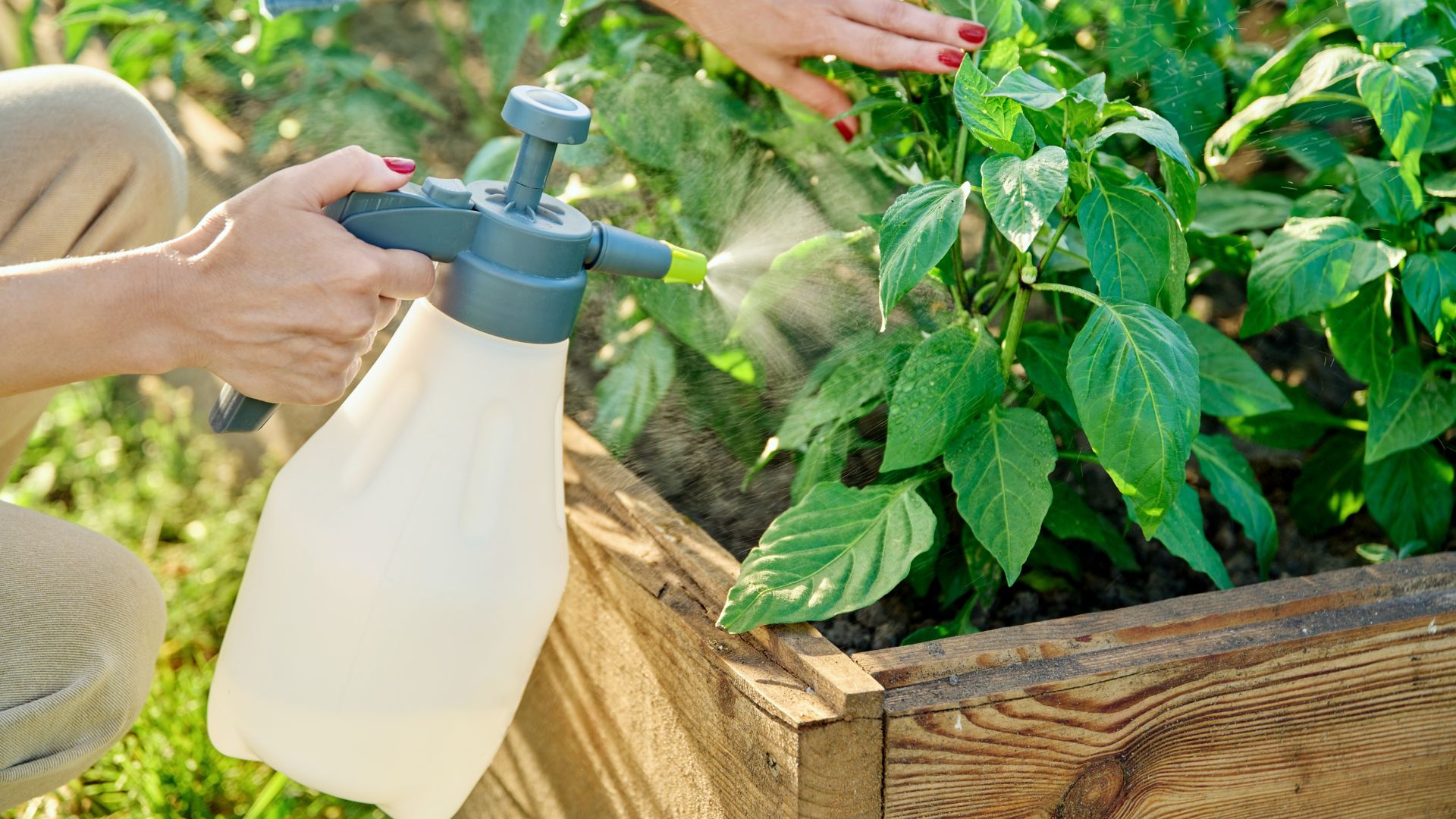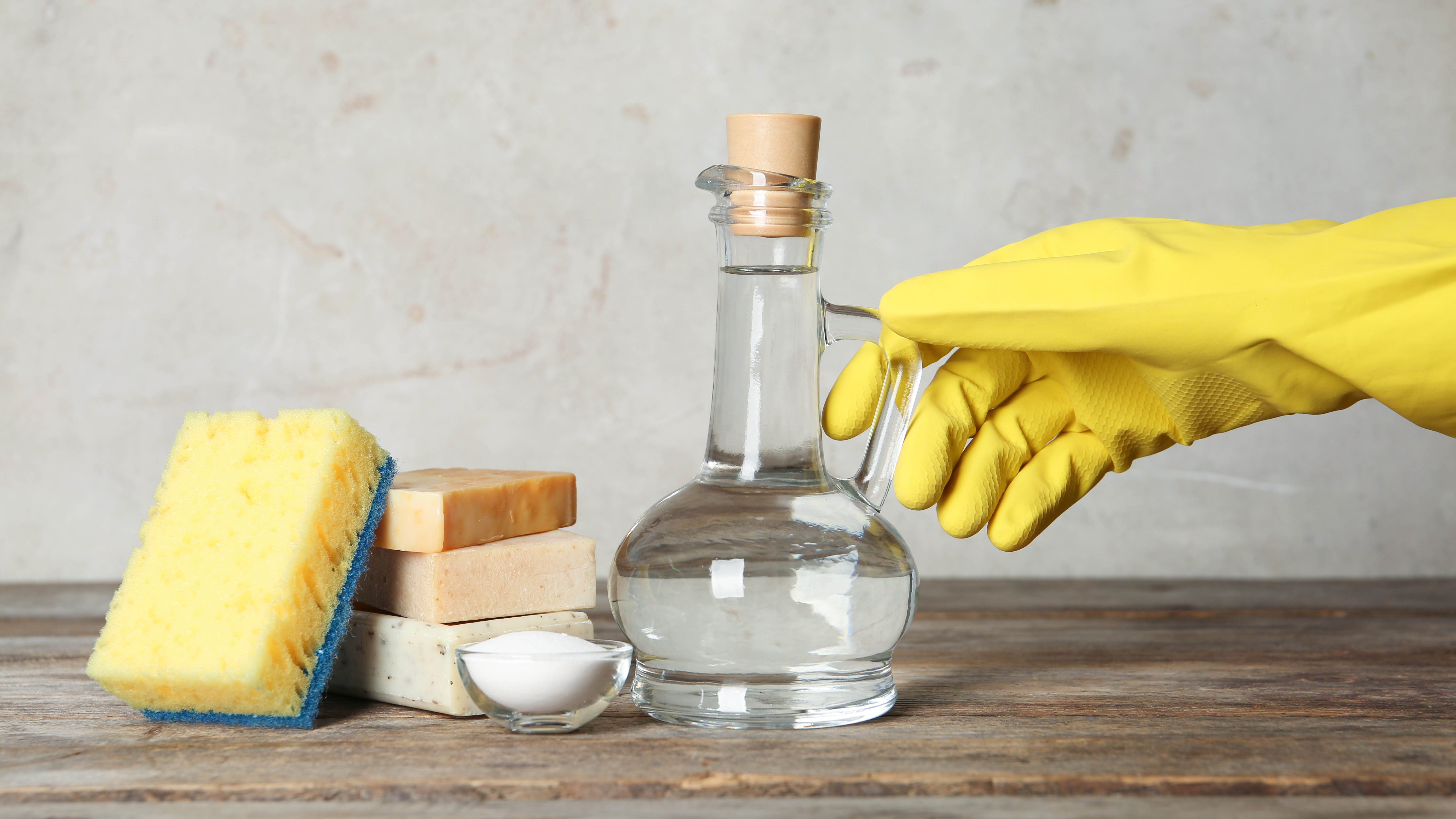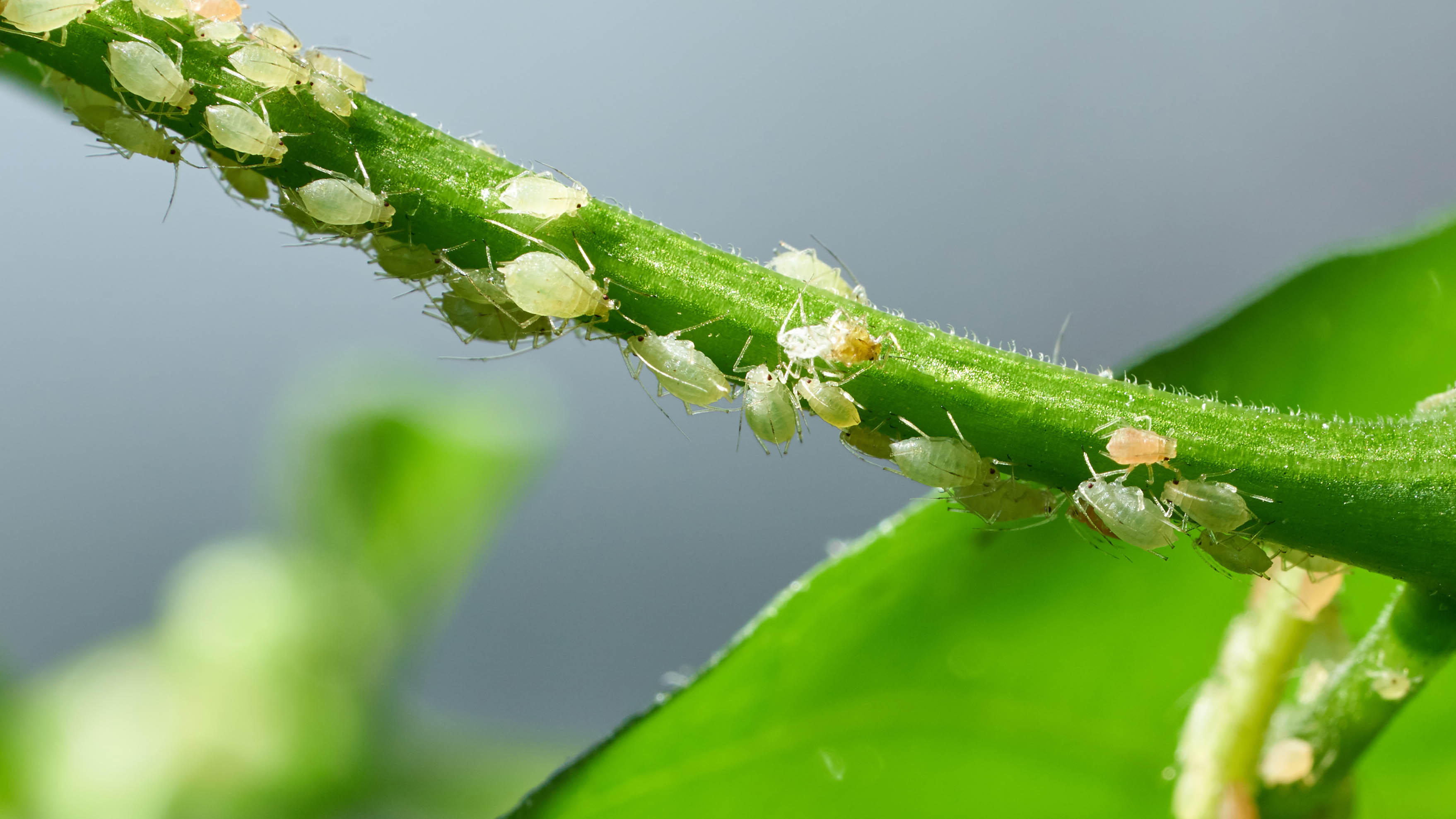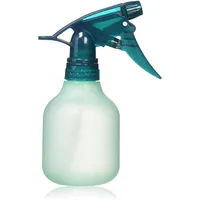How to make homemade bug repellent — 3 spray recipes to keep your yard pest-free
3 easy and natural bug repellent sprays you can make at home

Spending time outside in the summer can do wonders for your mental and physical health — but bugs and insects can quickly cause your enjoyment to end. There are dozens of bug-repellent sprays on the market that promise to solve your problem, whether you want to get rid of mosquitoes or banish ants from your yard. However, many of these sprays contain chemicals that can harm children and pets if touched or ingested. So what’s the solution?
The most straightforward answer is learning how to make homemade bug repellent. With a few ingredients you likely already have at home, you can quickly begin tackling your outdoor bug problem and return to enjoying the warm weather.
We consulted with three pest control experts — Steve Rosas, COO and president of Omega Environmental Services, Peter Rania, president and CEO of Waltham Pest Control Co., Inc., and Kyle Selbach, Florida Pest Management Association board member and director of operations at All U Need Pest Control — to get expert-approved recipes for banishing bugs from your abode. Read on to learn how the experts use everyday items to repel bugs.
How to make homemade bug repellent
1. Essential oils

“Anything essential oil would be great as a homemade bug repellent"
Essential oils, especially rosemary, citronella, and eucalyptus, can act as natural pest repellents. Based on their experience, we asked the experts to suggest some recipes.
“For a homemade bug spray, I suggest mixing water, witch hazel or vodka, and several essential oils such as citronella, lemongrass, catnip, or lavender oil,” recommended Rosas. “The alcohol helps the oils mix into the water. Spray this natural repellent around outdoor areas where bugs may gather.”
Rania suggested an alternative recipe. “An effective homemade bug spray can be made by mixing rosemary, eucalyptus, citronella, and peppermint essential oils with water in a spray bottle,” he said. “The natural oils deter insects while the water dilutes the concentration to a safe level. We recommend spraying entry points, outdoor furniture, and other areas where bugs are active.”
“Anything essential oil would be great as a homemade bug repellent,” agreed Selbach.
Get instant access to breaking news, the hottest reviews, great deals and helpful tips.
A basic spray bottle should do the trick for either of the above methods. Simply mix the desired proportions of each ingredient in the bottle, secure the lid, and shake well to combine. Spray the mixture around your patio area or directly on plants to keep bugs at bay.
“These natural pest control methods have been tested and proven effective for many of my commercial and residential clients,” said Rosas. “They provide safe, non-toxic solutions to common pest problems. I always recommend starting with the minimum amount of repellent needed and increasing slowly to avoid irritation to people or pets. With some experimentation, you can find the right essential oil blends and concentrations for your needs.”
Rayson Empty Spray Bottle: $6.49 @ Amazon
This refillable spray bottle is perfect for experimenting with homemade repellent sprays, and its trigger is designed for ergonomic comfort for regular use.
2. Insecticidal soap
If you don’t have essential oils, you can still make an effective bug repellent, like an insecticidal soap, using ingredients you probably already have at home.
To make this homemade bug repellent, combine a cup of vegetable oil with a tablespoon of dish soap. This mixture acts as a shelf-stable concentrate that you can keep indefinitely. Combine one teaspoon of the concentrate with two cups of warm water in a spray bottle to use on bugs like aphids, leafhoppers, and mealybugs. Use the mixture up within one day and discard any leftovers.
Insecticidal soap can be sprayed directly onto plants, but it’s essential to test it out on a small section of leaf before spraying it over an entire plant.
3. Vinegar spray

Another effective solution involves regular white vinegar (or apple cider vinegar if that’s what you have). Vinegar has a strong smell that’s unpleasant to pests like ants and wasps, so it can make them think twice about infesting your home or patio. And when ingested, it can be toxic to bugs like moths, mosquitoes, fruit flies, and bed bugs.
To make a vinegar-based bug repellent, combine one cup of vinegar with three cups of water in a spray bottle and shake vigorously to combine. Add a few drops of your favorite essential oil or lemon peel to improve the smell. Once combined, spray the mixture anywhere you don’t want bugs congregating.
What to do if homemade repellents aren’t working
If you’ve tried out several homemade solutions with no luck, you might wonder how to get rid of bugs once and for all. A pest control professional can help with extensive infestations but is more likely to use toxic ingredients. If you want to keep your bug-fighting methods as natural as possible, look for a pro who uses nontoxic ingredients or ask them to provide an ingredient list when you request a quote.
If the infestation is minor, try retreating before contacting a pro or using chemicals. Natural repellents may need several applications before you begin to see results. But for certain pests, it’s best to act quickly. For example, if you find evidence of a termite or bed bug infestation, it’s best to call in the pros ASAP before the pests can cause severe (and expensive) damage to your home and its contents.

Keeping your yard clean of debris and trash is an easy way to discourage pests. “If you wanted to control pests without using pesticides, I would recommend using methods of integrated pest management,” said Moore. “This would include sanitation, cleanliness, trimming back trees, and limiting other pest harborage areas.”
Piles of wood close to the house can create the perfect nest environment for a range of pests, who will then enter your home to look for food. An unsecured trash can is a beacon for annoying pests like wasps and flies. You can also create natural barriers around plants that can deter harmful pests. For example, burying banana peels in the soil beside plants can deter aphids, while sprinkling diatomaceous earth will keep ants away.
More from Tom's Guide

Catherine Hiles has over a decade of experience writing and editing on various topics, including home improvement, personal finance, home finances, pet ownership, and parenting. Her work has been featured on BobVila.com, TIME Stamped, The Penny Hoarder, and more. In her spare time, Catherine enjoys running, reading, spending time with her kids and dogs, and tackling projects around the house.

